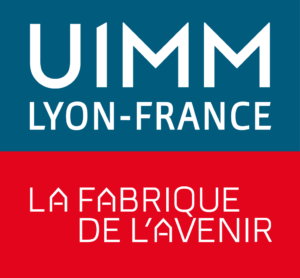ISO 25239 standard and aluminium friction stir welding
Specifically dedicated to the assembly of aluminium using the friction stir welding process, ISO 25239 standard is now at the heart of the welding industry. It is becoming a must for professionals concerned about the quality of their components.
Because of its advantages and its increasing use in demanding sectors, FSW welding faces many challenges. It is becoming necessary to call on highly qualified operators and to follow rigorous procedures!
EN 25239 certification defines a common framework for FSW welding operations. Its aim is to guarantee perfect control of FSW machines and the reliability of welds.
But what are the specific features of FSW welding? What is ISO 25239 standard? And which sectors use this certification? In this article, TRA-C industrie, member of the drafting committee for this accreditation, tells you more about its principles and benefits…

What are the specific features of the friction stir welding process?
Friction stir welding, a relatively recent and innovative method, is very different from traditional processes. Its advantages make it the method of choice for many cutting-edge sectors. Some of its key features include:
- Solid state welding: the first particularity of FSW is that it does not melt the materials. It is the combination of the pressure exerted by the tool and the heat generated by friction that will mix the metals to create a uniform bond;
- No filler material: unlike arc welding processes, FSW does not require consumables such as electrodes or shielding gas to create the heat needed to melt the materials. The mechanical action of the rotating tool in contact with the parts is all that is needed to soften them and ensure that they are stirred;
- Assembly quality: the absence of fusion means that parts retain their mechanical properties. FSW also causes little or no deformation, distortion, porosity or other defects. The result is extremely strong, durable welds;
- Highly flexible: friction stir welding is particularly recommended for assembling metals that were previously difficult to weld. This is the case for light alloys such as aluminium or composite materials, whatever their thickness or geometry;
- Customizable parameters: finally, most parameters can be controlled in FSW. These include speed rotation of the pin, feed speed of the tool along the weld bead, pressure applied to the parts by the shoulder and tilt angle of the tool.
What is ISO 25239 standard?
The NF EN ISO 25239 standard is an international regulation that defines the requirements and test methods for friction stir welding of aluminium and its alloys. It sets out guidelines to ensure high-quality welds.
It was first published by the International Organization for Standardization (ISO) in 2010 and revised in June 2020.
This certification covers all aspects of the welding process. It includes the terminology used in FSW, procedures, qualifications of operators, testing requirements, acceptance criteria and all necessary documentation.
ISO 25239 highlights 4 main objectives:
- Establish criteria and test methods to ensure the quality of welds
- Guaranteeing the safety of welding operations and technicians
- Serve as a guide for the qualification of procedures, welders and operators
- Ensuring uniformity and standardization in friction stir welding


What are the sections of EN 25239 certification?
The ISO 25239 standard actually comprises 5 documents relating to friction stir welding of aluminium. Each part of the certification serves as a guide for each stage of the welding process:
- ISO 25239-1: vocabulary. This document defines the terminology used in friction stir welding to ensure a common understanding of terms and concepts;
- ISO 25239-2: Design of welded joints. This part covers the requirements specific to design. It details the documentation and design data for the assembly and provides additional information;
- ISO 25239-3: qualification of welding operators. It establishes the requirements for the qualification of welding operators. It focuses on essential variables, areas of validity, qualification methods, welds and test reports;
- ISO 25239-4: Description and qualification of welding procedures. This document specifies acceptance criteria for friction stir welds, covering defects, weld dimensions, mechanical properties, etc.;
- ISO 25239-5: quality and inspection requirements. Finally, this part specifies the obligations relating to welding personnel, inspection and testing personnel, equipment and welding tools.
What are the advantages of welding according to ISO 25239 standard?
Following the guidelines of ISO 25239 standard has many benefits for friction stir welding professionals. These include:
- Proof of expertise: complying with the principles of this certification is first and foremost a guarantee of trust for customers and business partners. It demonstrates the company’s ability to design high-quality welds;
- Improved quality and reliability: implementation of this standard means that standardized welding procedures and strict acceptance criteria must be followed. It therefore helps to improve the reliability and durability of welds;
- Reducing risks and failures: ISO 25239 also establishes methods for assessing the quality of welds. It thus makes it possible to prevent the risks of weld failure;
- Access to new markets: following the ISO 25239 standard demonstrates a willingness to comply with regulatory requirements. It is a prerequisite for respond calls for tender and contracts in certain cutting-edge sectors;
- Competitive advantage: complying with ISO 25239 certification also enables companies to stand out from the crowd. It highlights their commitment to quality and their ability to respond to customer requests;
- Process optimization: by implementing the practices recommended by the standard, friction stir welding operations can finally be optimized. This leads to greater operational efficiency and lower costs.


Which sectors are using the 25239 certification?
ISO 25239 standard is required in sectors that use friction stir welding. These are industries where welding constraints are high, particularly when assembling aluminium:
- Aerospace: this sector makes extensive use of friction stir welding to manufacture light and strong components. ISO 25239 certification is therefore essential to guarantee the reliability of parts subjected to high stresses;
- Automotive industry: FSW welding is also used in the manufacture of bodywork parts, chassis, battery containers, heat exchangers and other components where lightness is a requirement. This is particularly true in the field of e-mobility;
- Shipbuilding: 25239 standard also makes it possible to guarantee the durability of parts subjected to specific environmental conditions. These include ship hulls, deck structures, superstructures and other marine components;
- Railway: FSW is used to assemble components for trains, wagons, metro carriages and other rail equipment. ISO 25239 certification guarantees the quality and safety of these components;
- Energy sector: turbine components, generators and energy transmission systems require meticulous welding to maintain their performance over time. ISO 25239 meets these criteria.
TRA-C industrie, expert in friction stir welding based on ISO 25239 standard
In order to guarantee the high quality of assemblies and to stand out in a competitive sector, ISO 25239 standard is now a must in the friction stir welding industry.
If you are a welding professional, it may therefore be a good idea to apply for this certification or to call on a subcontractor who is also certified. If you are a manufacturer, on the other hand, make sure you use a service provider who complies with this standard!
With its 9 production sites in France, its workshop in Canada and its technical design office, TRA-C industrie is now Europe’s leading expert in FSW welding. We guide you at every step of your project, from design to manufacture of your components.
The company also follows the principles of the EN 25239 standard, demonstrating its commitment to the quality of its assemblies and its mastery of friction stir welding. We are also a member of the drafting committee for this regulation…
We guarantee reliable, long-lasting welds made to the highest standards. We can adapt our assemblies to meet all your needs, whatever the sector: aeronautics, space, rail, e-mobility, naval, energy, defense, etc.








